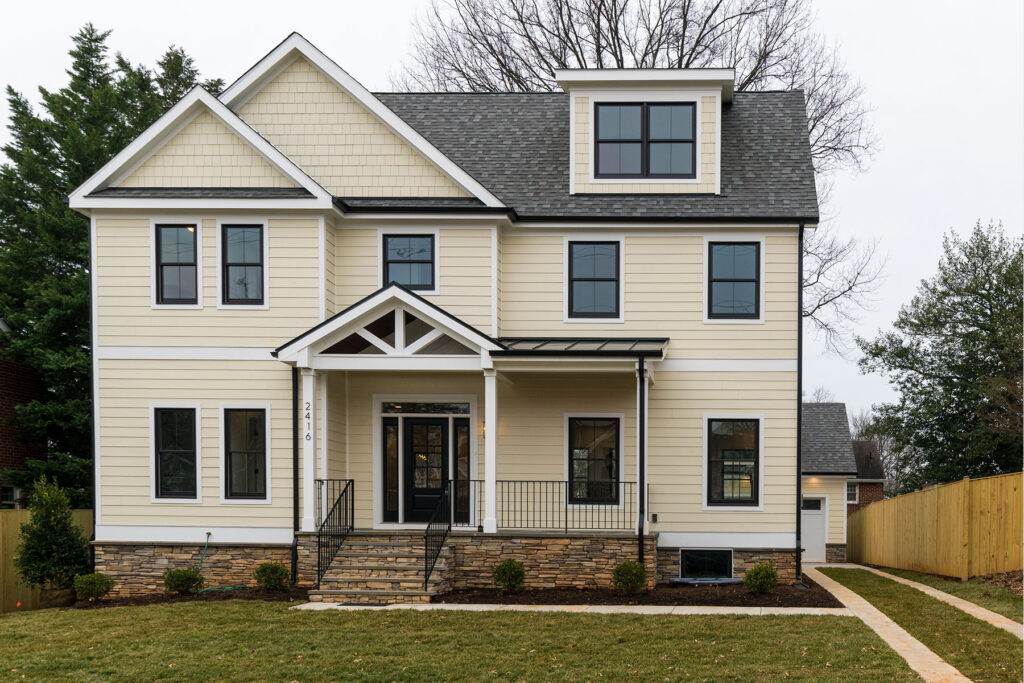Few topics create more confusion than the question of whether a Realtor must disclose that a home was built in a modular factory. Here’s the reality: there are generally no universal legal or banking regulations requiring disclosure if the home meets International Residential Code (IRC) standards. Once set on a permanent foundation, a modular home is not legally distinct from a site-built one.
So, if the law doesn’t require disclosure, why does the issue keep coming up? The answer lies in how buyers, lenders, and appraisers perceive modular construction.
What the Law Actually Says
Real estate disclosure laws are determined at the state and local levels, and they hinge on “material facts,” not how a home was built. A material fact is any known defect or issue that could significantly affect the property’s value, desirability, safety, or a buyer’s decision.

Modular or SiteBuilt?
By that definition, modular construction itself usually doesn’t qualify. A modular home is built to the same local IRC codes as a stick-built home and, once finished, is nearly impossible to distinguish from one.
The confusion arises when modular gets lumped in with “manufactured” housing. Unlike modular homes, manufactured (or mobile) homes are built to federal HUD standards, not IRC codes, and carry very different disclosure requirements. That’s where the misperceptions start—and why Realtors often err on the side of disclosure anyway.
Where Finance and Appraisals Come In
Even though modular status isn’t a legal disclosure requirement, it sometimes becomes an indirect one during the financing and appraisal process. Fannie Mae, for example, doesn’t single out modular homes in its Selling Guide. Instead, appraisers are asked to focus on comparability and marketability.

Modular or SiteBuilt?
Here’s the catch: to prove a modular home is marketable, appraisers often need to compare it to other modular homes. That detail winds up in the appraisal, meaning the lender—and eventually the buyer—becomes aware of how the house was built.
In practice, the lending process forces due diligence. The construction method may not be a negative, but it usually doesn’t stay hidden.
Best Practices for Realtors
So, should Realtors proactively disclose? The safe answer is yes. While not a legal requirement in most cases, disclosure is generally considered best practice. It prevents misunderstandings, avoids potential lawsuits, and builds trust with buyers.
The best advice for Realtors is simple:
- Disclose what you know. Even if modular status isn’t a legal “material fact,” it can still influence a buyer’s perception.
- Be transparent early. Including the information in a listing can prevent deal-breaking surprises later.
- Seek legal guidance when unsure. If there’s ever a gray area, consult a local real estate attorney.
The Unfair Bottom Line
Modular homes built to IRC standards are legally the same as site-built homes, but the perception isn’t always as straightforward. The method of construction rarely rises to the level of a “material fact,” yet disclosure often becomes the smartest move for Realtors who want to avoid headaches and foster trust.

Modular or SiteBuilt?
Because at the end of the day, transparency doesn’t kill deals—it protects them.
.
With over 9,000 published articles on modular and offsite construction, Gary Fleisher remains one of the most trusted voices in the industry.
.

CLICK HERE to read the latest edition

Contact Gary Fleisher
Modcoach Note: All the houses in this article are constructed using modular methods.












